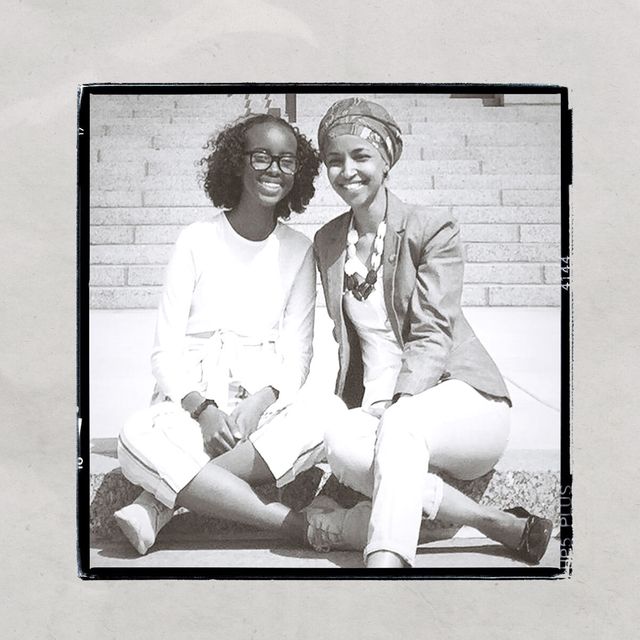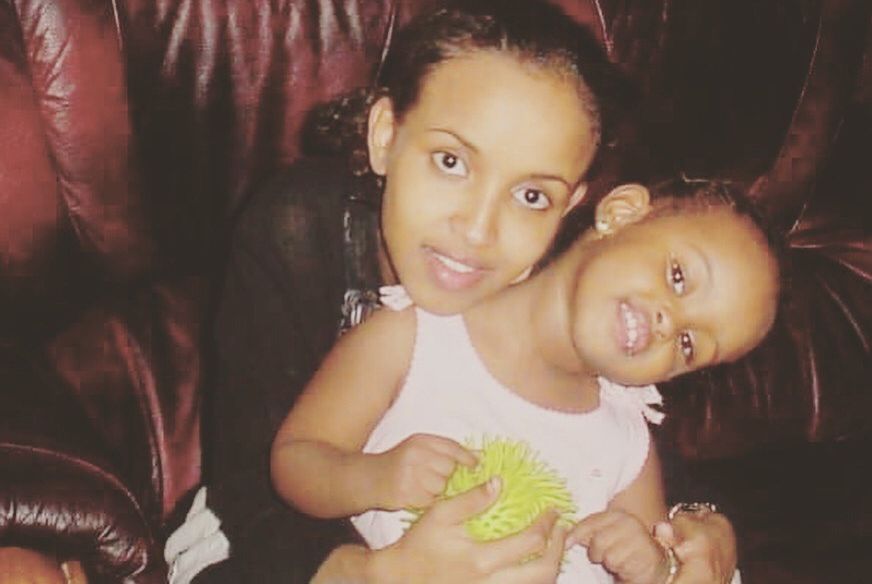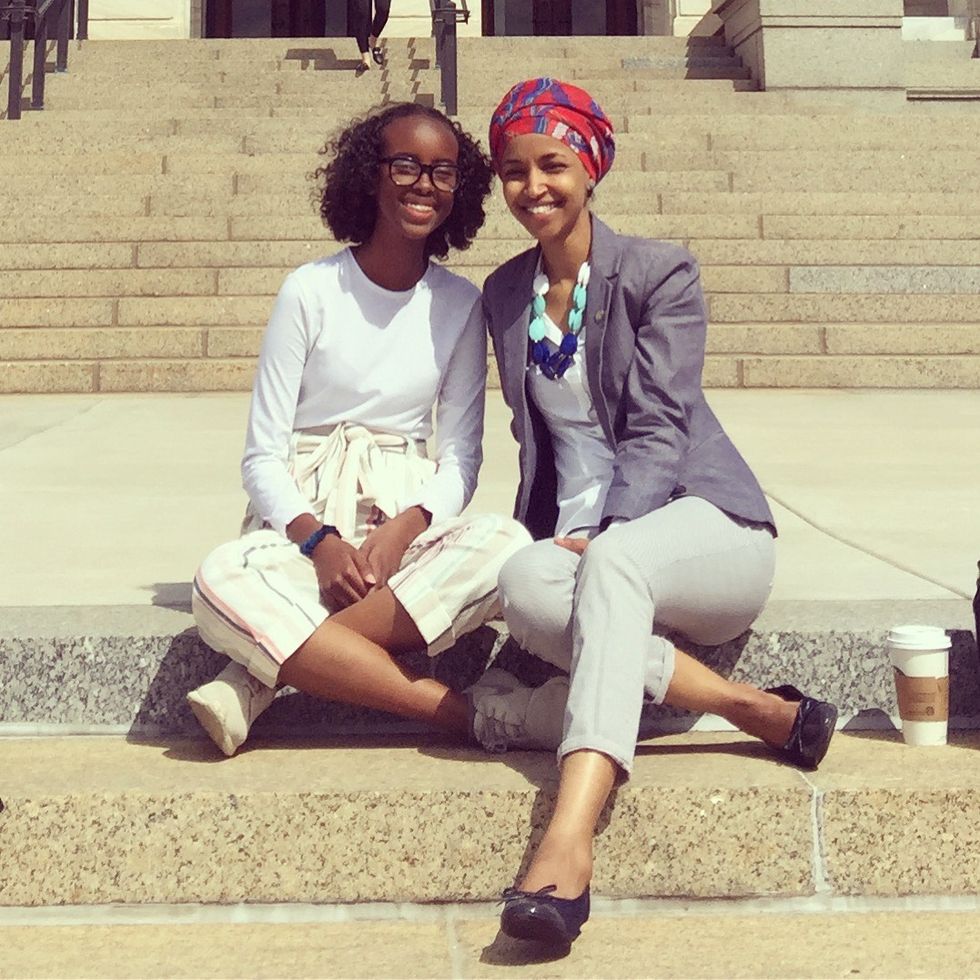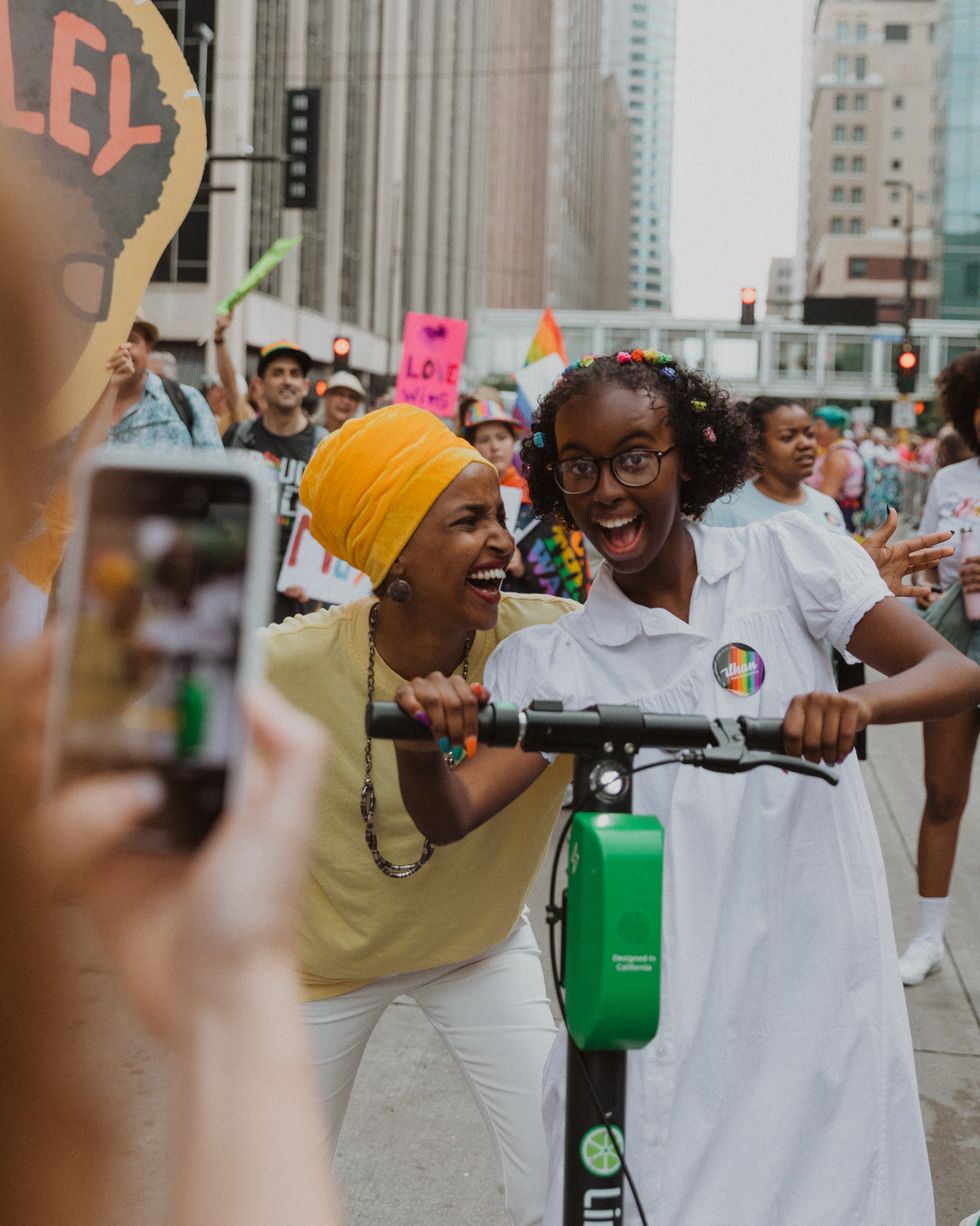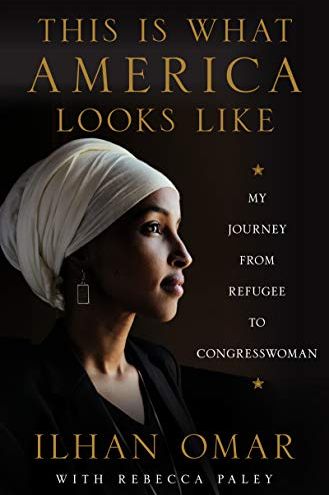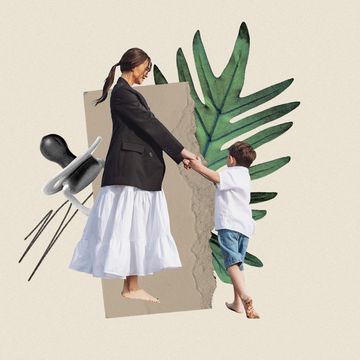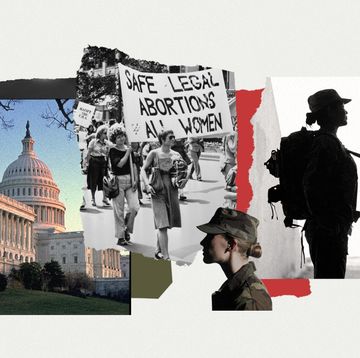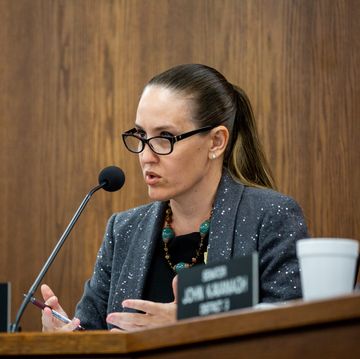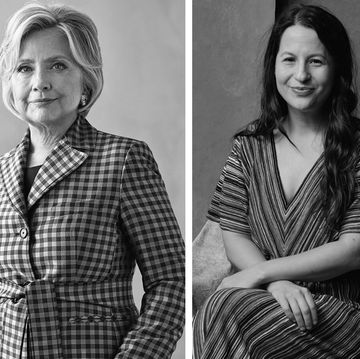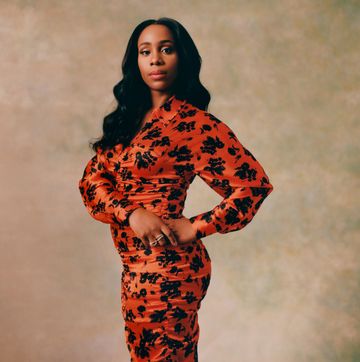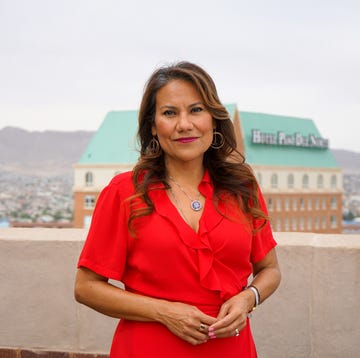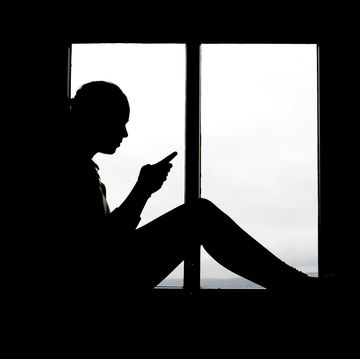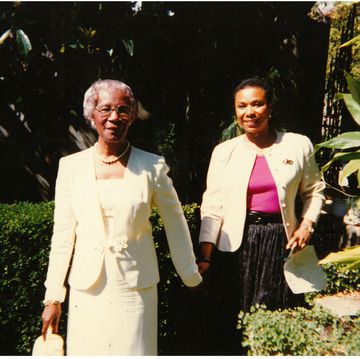Representative Ilhan Omar (D-MN) is a survivor. She fled war, persecution, and rising extremism in her native Somalia with her family as a child, and then spent four years living at a refugee camp in Kenya where she had to fight others off to collect water for her family.
When Omar first arrived in the U.S. at age 10, where she was later granted asylum and eventually citizenship, she was badly bullied at school. As an adult, when her "impulsive second marriage" ended, she suffered what she calls a Britney Spears-style meltdown (yes, she shaved her head).
Once she entered politics, Omar was beaten up by five people at a 2014 caucus event for Andrew Johnson, whose campaign for Minneapolis City Council Omar was managing. And then, after she was elected to Congress as one of the first two Muslim women to serve, she was targeted by President Donald Trump and his supporters who chanted “send her back!”
So much has been said about Omar’s unique history since she took office, but in her new memoir, This Is What America Looks Like: My Journey from Refugee to Congresswoman, out May 26, she finally gets to tell her story for herself. The result is a deeply personal tale of a woman who constantly fights back against the bullies standing in the way of her making her way in the world. To mark the release of the book, ELLE.com asked Rep. Omar's 17-year-old daughter Isra Hirsi, a rising star in her own right as co-executive director of the U.S. Youth Climate Strike, to interview her mom. Here, the mother-daughter duo talk refugee camps, representing the marginalized, and their modern Muslim family, in a conversation moderated by ELLE.com.
Isra Hirsi: How did losing your mom at age 2 and being raised by your father and grandfather shape you?
Rep. Ilhan Omar: I feel blessed to be raised by two people who were extremely focused on making me feel like I wasn’t without. My father and grandfather were such good caregivers and gave everything to me that I needed, so it didn't really hit me that I was without a mother until I became a mother myself. You don't know you're without until you need it. I remember being at the hospital giving birth to you and my dad was there. For everyone else, it was quite awkward—fathers aren't really expected to be in a birthing room with their daughters—but I wanted him there and I appreciated that he was willing to be there. I didn't really have the ability to connect with him on everything that I was going through, though, so that was the first time that I felt like that I was a motherless child. I remember stopping myself every time I wanted talk to him about the discomforts I was feeling or any of the changes that were happening to my body because he wouldn't be able to relate.
Hirsi: How does your experience as a refugee inform your work in Congress?
Rep. Omar: In the refugee camp, it's survival of the fittest and you learn quickly how to adapt into a foreign, hostile environment. You have a front row seat to extreme struggle, but also get to witness compassion as well. Ultimately, you learn what your capacity looks like—what you're willing to overlook and what you're willing to fight for. My family would send me to fetch water in the refugee camp because they knew I wouldn't come back without it. And I think that sort of fighter mentality of like, "I'm going to make sure what is needed is being fought for," really, is the reason I'm able to work so hard on behalf of my constituents and why my colleagues know that I won't really compromise on the things that I care about that are important.
ELLE: How did your experience in the refugee camp—fighting others off to get water—and being bullied in school once you arrived in the U.S. prepare you for all the public scrutiny and attacks from President Trump now?
Rep. Omar: I spent a lot of time in my life being on the receiving end of bullies and have always stood up to them and have been able to not lose myself in the process. I know that to some folks, it's a vulnerable space to be in, but for me, it's a space that I know how to navigate. [After attacks from the president], my colleagues would come up to me and say, "I'm so sorry about this." And I'm like, "I survived war. I survived life in a refugee camp. I could certainly survive these people." And that's sort of been the case.
Hirsi: In the book, you talk a lot about the messages of support you’ve received. Why did you choose to focus on that?
Rep. Omar: I learned this lesson at a young age that when you stand up for yourself, others will stand with you. That lesson has really been amplified in the last couple of years for me. I know that every time I am attacked, it's not me personally that's being attacked, it's everything that I represent. And so me standing up for myself is ultimately me standing up for every single person who shares a marginalized identity with me. There is an aspect of my fight that resonates with people and it allows them to also rise up and say, "We're not going to take it." If I wasn't pushing back and standing up, I think people would be deterred and the [people attacking me] would ultimately win.
Hirsi: How does it feel to have all that pressure of having to represent marginalized identities?
Rep. Omar: It’s both a blessing and a curse. I have the honor of being a first in so many magnitudes and being a voice for people who never really imagined themselves in the halls of power. But it also puts me in a weird fishbowl where everybody gets to pick and poke at me, where I get to deal with the anti-black, anti-immigrant, anti-Muslim—the trifecta of hate. As we exist just normally in society, we deal that with every day, but to deal with it on an international stage is challenging.
I don't want any reaction I have to any of the challenges that I face to serve as a deterrent from anyone else ever aspiring to be in the halls of power. So, I do often take the high road and tell people that love ultimately will trump hate, and that if we walk in the world with compassion and a space for understanding, we will go beyond just beyond tolerance and eventually get to live in a more inclusive society that is accepting and celebrating of its diversity. That's sort of the reason we titled the book, This is What America Looks Like." It’s in response to this idea that America is monolithic in its identity, which it's not, and the more there are new Ilhans, the more we can get to see an actual representation of what America looks like.
Hirsi: How does your Muslim-ness, or your Muslim identity, play into the person you are in Congress?
Rep. Omar: My Muslim-ness is anchoring for me. It's part of how I relate to the world and it's also something that is extremely personal and internal, even though I express my Muslim-ness externally. To be one of the only physically Muslim people to ever serve in Congress, it's truly an opportunity really to help reshape the idea of what a Muslim is and what a Muslim looks like. Oftentimes, we associate Muslim-ness with being an Arab and I think to have the first, most visible Muslim person in America be a black immigrant from Africa allows the world to be able to see Muslims in their diversity. I also exist as a mother, as a lawmaker, as a sister, as a friend—that is who we are beyond our face—and those, really, are the aspects [of who I am that] I want to continue to shine through as I serve publicly as a Muslim.
I also think there is an invisibility aspect to being a Muslim woman. We are caricatures; we are seen as the people who are oppressed, who need saving, who come from patriarchal families. These ideas of inferiority really couldn't be farther from who I am and how I was raised. I was raised by men who believed we are all created equal and should live as such. My boldness and my ability to fully exist as myself is a shock to the conscience of many of my colleagues and observers, because I'm not the image they have of a Muslim woman. And I think that's really the beautiful part of being a multidimensional person, who also gets to be fully Muslim.
Hirsi: That definitely makes sense because you talk a lot about how growing up in a nontraditional household helped you recognize your worth.
Rep. Omar: How do you feel about that? Does that show up for you in your life? Do you hear about or subscribe to the thoughts of Muslim women being oppressed and are people shocked you have a Muslim mother like me?
Hirsi: I recognize how modern our family looks like to other people…
Rep. Omar: Even though I’m covered, you think we show up as a modern family?
Hirsi: Submissive is the wrong word, but I hear families talk about a mother “keeps to herself and doesn’t take control of the family.” But in our instance, there’s, like, no divide between you and my father. You took the lead for yourself. I remember hearing people [say things about you] like, “women are supposed to be in the kitchen,” or “Muslim women aren’t supposed to be doing those things,” or “She doesn’t know her place.” And I’m just like, do you know how I was raised? I wasn’t raised to be submissive or to be under my little brother, but rather, I was raised to understand that I exist in the world as myself.
ELLE: Can you talk about how it has felt to be so exposed publicly—to have your personal life dragged through headlines, to have lies told about you?
Rep. Omar: The narratives that are out there about me really go along with this idea of me being a complete unicorn in Congress. No one that has all of the marginalized identities that I have has ever served in Congress. To be in a position of influence at a time where the country I was born in is on a national ban, where we have extreme anti-immigrant, anti-black, anti-Muslim rhetoric coming from the highest office of this nation—it sort of makes sense that there would be a next level to the filth that followed Obama's presidency. I said to my children once, "People literally can write anything and everyone would probably believe it,” and that is because I represent people who are easy to vilify. As much as I work really hard to shield my family from it, I also knew that my book was going to be my opportunity to invite people into my life and into my existence in a way that is different than the articles that have been written about me.
ELLE: How did it feel to divulge so many personal stories in the book?
Rep. Omar: As someone that is extremely private—to the point where I would never even share like five percent of what I wrote in my book with a friend—to write it was excruciatingly painful. But it was also truly liberating because when we are able to share our story, we're inviting people to join us on the journey that we are on, and that's really my hope with this book. I know that, as Speaker Nancy Pelosi says, it’s a badge of honor for so many people to be invested in trying to take you down because they perceive you to be influential and powerful. But I also think it is an extreme badge of honor to be able to demystify the process of going from a refugee to Congresswoman within two decades, to demystify what a refugee looks like and aspires to, to demystify what a lived experience for a young Muslim woman in America is like, and to demystify what a normal next door Muslim immigrant black family is like.
The ups and downs that I've gone through, the extreme challenges and extreme successes that I've had are all found in the pages of this book. Hopefully it will serve as an inspiration and will help others who might be going through some of the same things that I've gone through feel like, "My goodness! If Ilhan can survive all of this, I certainly can get through this one thing today."
